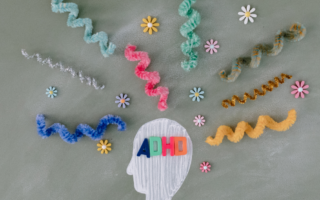As mentioned in my previous blog post, the importance of nutrition plays an important role in managing symptoms of ADHD. Although challenging, I encourage you to push through these common challenges and continue.
Here are the top 8 common challenges parents face and how best to overcome them.
1. Picky Eating
- Challenge: Many children, especially those with ADHD, can be picky eaters, making it difficult to introduce new, healthier foods.
- Solutions:
- Involve children in meal planning and preparation to increase their interest in foods
- Make meals colorful and visually appealing
- Introduce new foods gradually alongside familiar ones
- Use positive reinforcement when children try new foods
- Be patient and persistent – it may take multiple exposures for a child to accept a new food
2. Time constraints
- Challenge: Busy schedules make it hard for families to have regular, healthy meals together.
- Solutions:
- Establish consistent meal and snack times to create a routine
- Prep ingredients or meals in advance when you have more time
- Keep healthy, easy-to-grab snacks on hand
- Involve children in meal prep to save time and teach skills
3. Cost of healthy foods
- Challenge: Parents report that the cost of healthy foods can be an obstacle.
- Solutions:
- Focus on affordable nutrient-dense foods like beans, eggs, and frozen vegetables
- Buy produce in season when it’s cheaper
- Compare prices and buy in bulk when possible
- Cook more meals at home instead of buying prepared foods
4. Lack of nutrition knowledge/cooking skills
- Challenge: Some parents lack awareness of nutritional needs or cooking abilities.
- Solutions:
- Educate yourself on basic nutrition through reputable sources
- Start with simple, healthy recipes and build skills over time
- Involve kids in cooking to learn together
- Consider taking a cooking class as a family activity or make it a family activity to pick one recipe per week where everything chips in.
5. Competing influences (advertising, school food, etc.)
- Challenge: External factors like food marketing and school meals can undermine healthy eating efforts at home.
- Solutions:
- Limit screen time, especially during meals
- Teach kids to be critical of food advertising
- Pack healthy lunches when possible
- Advocate for healthier options at your child’s school
6. ADHD medication side effects
- Challenge: Some ADHD medications can suppress appetite.
- Solutions:
- Offer nutrient-dense foods when appetite is highest
- Provide healthy high-calorie snacks
- Consider adjusting medication timing in consultation with your doctor
7. Food sensitivities/allergies
- Challenge: Some children may have food allergies or sensitivities that limit options.
- Solutions:
- Work with a healthcare provider to identify safe alternatives
- Focus on nutrient-dense foods that are safe for your child
- Get creative with recipes to make allergen-free foods appealing
8. Sensory sensitivities related to food textures (this may fall in line to more OCD, however many children are co-morbid with ADHD)
- Challenge: Encouraging healthy eating habits in children with OCD or sensory sensitivities related to food textures
- Solutions:
- Gradually modify preferred textures to introduce new ones
- For example, if they like smooth textures, start with pureed vegetables before introducing chopped ones
- If a child refuses certain textures, find nutritionally similar alternatives they enjoy
- Avoid pressure or punishment
Remember, changing eating habits takes time. Be patient, celebrate small victories, and focus on gradual, sustainable improvements to your child’s diet.










